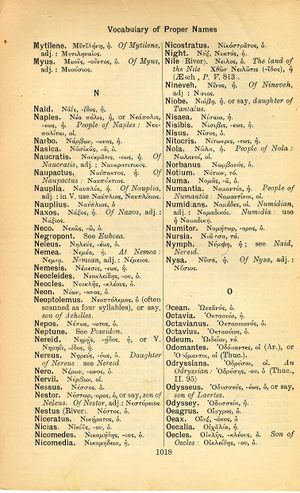Myus: Difference between revisions
From LSJ
ὅπλον μέγιστόν ἐστιν ἡ ἀρετή βροτοῖς → man's greatest weapon is virtue, virtue is the greatest weapon for mortals
(D_6) |
(Gf-D_6) |
||
| Line 1: | Line 1: | ||
{{WoodhouseENELnames | {{WoodhouseENELnames | ||
|Text=[[File:woodhouse_1018.jpg|thumb|link= | |Text=[[File:woodhouse_1018.jpg|thumb | ||
|link={{filepath:woodhouse_1018.jpg}}]]Μυοῦς, -οῦντος, ὁ. | |||
<b class="b2">Of Myus</b>, adj.: Μυούσιος. | <b class="b2">Of Myus</b>, adj.: Μυούσιος. | ||
Revision as of 07:42, 14 August 2017
English > Greek (Woodhouse)
Μυοῦς, -οῦντος, ὁ.
Of Myus, adj.: Μυούσιος.
Latin > English (Lewis & Short)
Myūs: untis, f., = Μυοῦς,
I a city in Caria, on the southern shore of the Meander, the smallest of the cities of the Ionian League, now the ruins of Palatsha, Nep. Them. 10, 3; Vitr. 4, 1, 4; Plin. 5, 29, 31, § 113.
Latin > French (Gaffiot 2016)
Mўūs, ūntis, f. (Μυοῦς), Myonte [ville d’Ionie] : Nep. Them. 10, 3 ; Plin. 5, 113 ; Vitr. Arch. 4, 1, 4.

